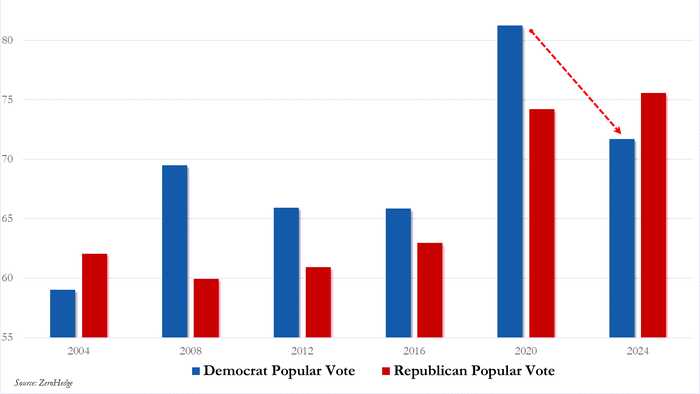In a recent CNN interview, House Judiciary Committee Chairman Jim Jordan effectively countered host Dana Bash’s inquiries regarding Republican claims of voter fraud and election integrity, particularly in the context of previous elections. Bash suggested that Republicans raise concerns of electoral misconduct primarily when they lose, citing Donald Trump’s defeat in the 2020 presidential election as an example. Jordan, however, adeptly redirected the conversation by questioning the accuracy of Joe Biden’s reported vote totals. He pointed out the discrepancies between Biden’s claimed 81 million votes and Kamala Harris’s 71 million votes, raising the issue of the 10 million votes that seemed unaccounted for. This strategic pivot not only shifted the focus of the discussion but also highlighted the ongoing debate surrounding the legitimacy of the 2020 election results.
Throughout the interview, Jordan maintained his position that the 2020 election raised numerous concerns, particularly surrounding the methods of voting. He referenced the unprecedented use of mail-in and absentee ballots that characterized the election, emphasizing specific state-level issues—in particular, Pennsylvania, where millions of mail-in ballots reportedly lacked proper signature verification, contrary to state law. By addressing these irregularities, Jordan underscored a broader sentiment among many voters who remain skeptical of the electoral process. His insistence on these points illustrates the ongoing divisions within American politics about election integrity and the ramifications of legal voting procedures across various states.
Furthermore, Jordan’s assertion that Trump’s vote totals remained consistent while those of Democrats declined further fueled the debate. This comparison drew attention to the peculiarities of turnout and voter fraction, prompting the essential question of what factors contributed to Biden’s high numbers and Harris’s sharp drop. The conversation served as a reminder that the impressions of voter fraud and election integrity are not limited to partisan declarations; they are rooted in statistical anomalies that evoke legitimate concerns from segments of the electorate. The scrutiny of these numbers continues to be a point of contention and a driving force behind Republican discussions on electoral reforms.
The dynamic of the interview also highlights the broader narrative surrounding the legitimacy of elections in the United States, especially as the nation approaches future electoral cycles. For many Americans, the idea of election integrity transcends party lines and is increasingly becoming a pivotal issue of governance and public trust. Jordan’s response created a discourse that invites further examination of voter turnout dynamics and the methods employed for ballot counting. As the media continues to report on these matters, the emphasis on transparency and accountability in elections is intensified, reflecting the public’s desire for an electoral system they can trust.
Additionally, Jordan’s ability to navigate Bash’s questions illustrates the evolving strategies within political discourse. Instead of simply defending against accusations, he adopted an approach that emphasized inquiry and critical analysis, effectively flipping the script to expose perceived inconsistencies in the opposing narrative. This technique resonates with voters who feel disenfranchised or overlooked, reinforcing the notion that electoral discussions are not merely about winning or losing, but about ensuring a fair and transparent process for all constituents.
In summary, Jim Jordan’s appearance on CNN was marked by a robust defense of Republican concerns regarding the 2020 election, while simultaneously questioning the narrative surrounding Joe Biden’s vote count. By highlighting potential discrepancies in the electoral process and asserting the importance of understanding the voting landscape, Jordan engaged in a broader conversation about election integrity that continues to resonate with the American public. The interview exemplified the ongoing debates within political spheres, showcasing how each party navigates claims of fraud and integrity, all while seeking to maintain public confidence in democratic processes.

